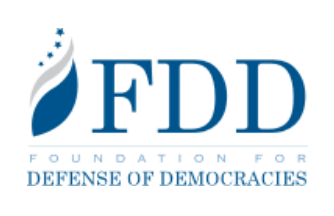
作者/Author(s): Craig Singleton, Mark Montgomery, and Benjamin Jensen
網站來源/Source: Foundation for Defense of Democracies
日期/Date: 10/04/2024
關鍵字/Keywords: 經濟、財政、網路安全
摘要:
主要觀點
- 在面對中國壓倒性實力時,台灣的經濟和網路能力非常脆弱。中國可以利用這些脆弱性,對台灣人民施加政治和心理壓力,這些是軍事手段無法達到的。
- 對中國來說,採取經濟和網路戰的誘因很高
- 中國可能可以避開嚴重的外交和經濟成本。
- 可以阻擋台灣、美國及其夥伴的反制。
- 與軍事入侵相比,經濟與網路站成本較低。
- 可以輕鬆調整和重複使用。
- 政府可以否認某些行為,有效避責。
- 可能不會引發美國及其他夥伴的報復。
- 對台灣而言,經濟、網路與社會的韌性至關重要。雖然建立韌性的過程很慢也很艱難,需要政府、公眾和私人企業之間的緊密協調,台灣、美國和理念相近的夥伴必須提高台灣抵抗中國的能力。
- 台灣應該減少對中國金融槓桿的依賴,分散能源和通訊來源,加強公私網路防禦夥伴關係,並投資於反制虛假訊息的倡議。
- 美國及其合作夥伴可協助台灣融入全球市場,建立更安全的網路體系,並針對中國的經濟威脅制定預先斡旋對策。
Summary:
Xi Jinping's ultimate ambition is Taiwan's unification with China. The CCP would prefer to annex Taiwan with minimal military force to maintain critical infrastructure and the economy. Therefore, cyber-enabled economic warfare is the most strategic and rational approach to materialize Xi's goal. Globalization and technological innovation bestowed China with many economic ties, giving it the ability to weaponize them. The US conducted many wargames focused on invasion or blockade scenarios but paid little consideration to the implications of Chinese economic coercion. To get a more complete picture, the Foundation for Defense of Democracies and the Taiwan Academy of Banking and Finance conducted a tabletop exercise on Chinese uses of economic and cyber warfare to capitulate Taiwan.
- Taiwan faces significant economic and cyber vulnerabilities from Chinese subversion. China could use them to produce political and psychological pressures on the Taiwanese which military means could not.
- Economic and cyber warfare are tempting for China because:
- China may not face consequential diplomatic and economic costs.
- Could obstruct counteractions from Taiwan, the US, and their partners.
- Lower entry cost compared to military invasion.
- Could easily calibrated and reused.
- The government could deny responsibility for certain actions.
- May not trigger retaliation from the US and other partners.
- Economic, cyber, and societal resilience are crucial for Taiwan. Although building resilience is slow, difficult, and requires close coordination among the government, public, and private businesses, Taiwan, the US, and their close partners must improve Taipei's ability to resist China's subversion.
- Taiwan should reduce its exposure to Chinese financial leverages, diversify energy and communication, improve public-private cyber defense partnerships, and invest in counter-disinformation initiatives.
- The US and its partners could help Taiwan by improving its integration into the global market, building more cyber-secure networks, and formulating pre-mediated responses against Chinese economic coercion.
